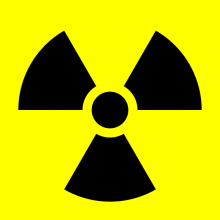More than six months since the last round of talks, six of the worlds most influential nations will meet with Iran again in three weeks to discuss Tehran’s nuclear program. The P5+1—consisting of the US, the UK, France, China, Russia and Germany—will sit down with Iran in neighboring Kazakhstan on February 26, according to the Iranian Fars News Agency.
The nuclear talks aim to resolve the international community’s concerns regarding Iran’s nuclear program, although three rounds of discussions that began two years ago have yet to achieve a breakthrough. Iran is approaching red lines as its nuclear fuel stockpile grows—further heightening fears it could eventually reach nuclear weapons capability. Following the latest announcement of talks, Germany called 2013 “crucial” in the nuclear dispute.
German Foreign Minister Guido Westerwelle, in a press statement, said of the talks, “A genuine will to engage in dialogue is now needed in order to take advantage of the window of opportunity which has emerged in the dispute over Iran’s nuclear program. The declared readiness to enter into talks should lead to substantial talks as soon as possible.”
Last year, Israeli Prime Minister Benjamin Netanyahu warned that could reach Iran by this spring or summer critical points in its nuclear program, which Netanyahu urged the world to set as “red lines” that Iran cannot be allowed to cross.
The US and Israel have long kept “all options on the table” regarding Iran, implying a potential military strike to stop Tehran’s nuclear progress, although they both hope for diplomacy to work. On Monday, Germany emphasized that hope as well.
“It is very much in our interest to resolve all differences by political and diplomatic means,” said Westerwelle. “2013 is a crucial year in which all efforts should be directed at defusing tensions.”
The P5+1 and Iran last fully met in Moscow in June. Following that round, European Union foreign policy chief Catherine Ashton said the sides had “begun to tackle the critical issues,” but noted that “significant gaps” clearly still remain between the sides.
(By Joshua Spurlock, www.themideastupdate.com, February 5, 2013)

